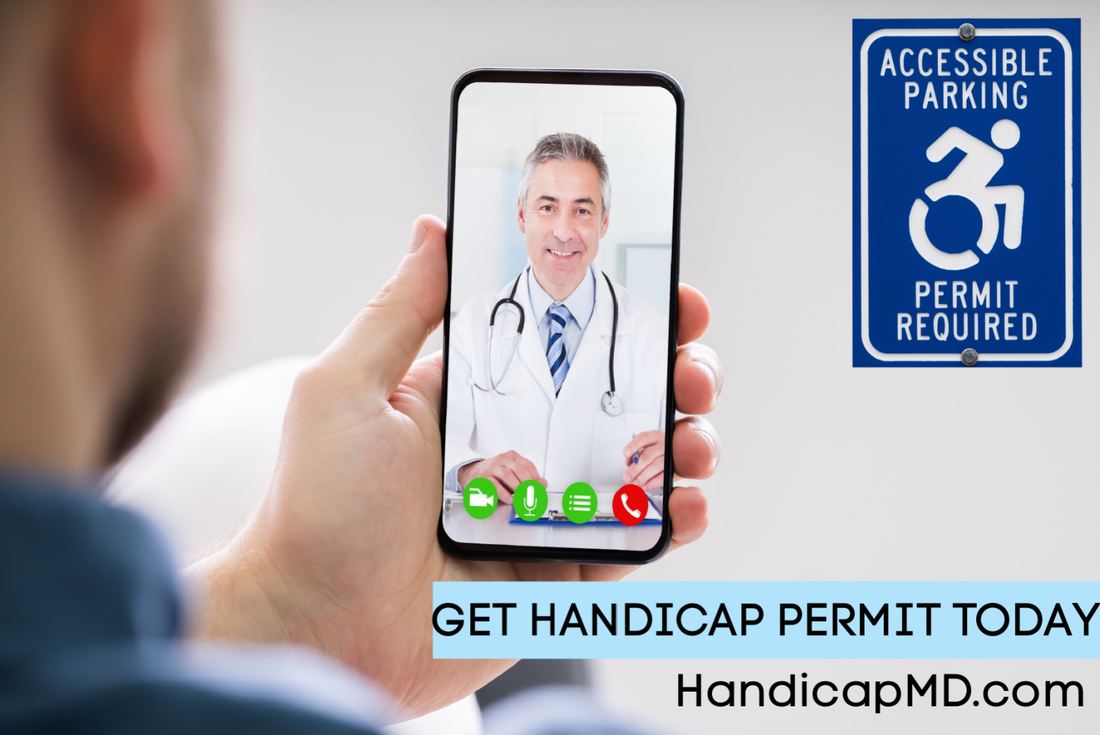
Check Out this Informative Guide on How to Get a Handicapped Parking Permit
Whether you have short-term or long-term mobility impairments, a handicapped parking permit is crucial. This saves you energy, time, and frustrations by parking in accessible parking areas adjacent to the entrances.
Each state has its qualification criteria for a handicapped parking permit run by the state's Department of Motor Vehicles (DMV). The majority requires a doctor's certification to verify your medical condition, but if you're visibly disabled, this requirement might be waived in most states.
It's important to check with your state to find the specific criteria and conditions for qualifying for a disabled parking permit. Parking at these designated spots without a valid state-issued parking permit can attract fines and citations for parking illegally.
In this article, we'll provide you with a stepwise guide on how to get a handicapped parking permit.
How does a handicap parking permit work?
Mobility problems and other health concerns make it difficult to get around. The handicapped parking spaces help them access buildings easier, thus helping the affected manage their days with reduced stress.
The parking spaces are limited for use by only people owning handicapped parking permits. These are state-issued permits, and they come in two varieties; the first one is a plastic tag or a placard hung from the rearview mirror. The second one is a special handicap license plate.
The two display the International Symbol of Access which is a wheelchair.
The departments of Motor Vehicle in different states and similar agencies issue handicap permits to eligible people. Mostly, it's people with mobility impairment and other health conditions preventing them from walking long distances.
Medical content reviewed by Dr Eric Jackson-Scott MD, Chief Medical Officer
 This permit allows one to part their car at the dedicated handicap parking spots near buildings entrances.
This permit allows one to part their car at the dedicated handicap parking spots near buildings entrances.
Other benefits may be attached to owning this perming, such as free parking in government parking lots or eliminating time limit enforcements.
Obtaining a Handicap parking permit
1. Determine if you're eligible
The first thing is to ensure you're eligible for getting the handicapped parking permit. It's important to note that your disability doesn't have to be visible for you to get the permit. The common conditions that qualify one to apply for this permit include:
• It relies on the assistance of a crutch, cane, brace, wheelchair, or the aid of another person to walk.
• Severely limited mobility due to orthopedic, arthritic, or musculoskeletal conditions.
• Documented visual problem or the maximum field of vision using both eyes have a diameter of 20 degrees or below.
• Having portable oxygen is a medical necessity.
• Loss of both legs or both hands, or limited use of these parts.
There are invisible disabilities that may qualify you, and these include:
• Patients undergoing cancer treatment.
• Chronic pain
• Hidden prosthetics
• Recent surgery
• Short-term memory loss
• Chronic fatigue
• Brain injury
• Organ transplants
• Pregnancy for women on bed rest
• Leg injuries such as knee injury
| VISION | RESPIRATORY | CARDIAC / HEART |
| MOBILITY | NEUROLOGIC | LIMB LOSS / AMPUTEE |
| ARTHRITIS | OSTEOARTHRITIS | INFLAMMATORY |
2. Talk to a HandicapMD doctor
Other conditions may apply, and hence it's important to confirm from your doctor if you're eligible. For example, some states grant a permit to people who have an acute sensitivity to sunlight which causes blistering of the skin.
3. Understand the types
There two types of handicap parking permit which are permanent and temporary. If you have the above conditions and others that qualify you, there is an excellent chance to get either of the two types of a handicap parking permit.
You should discuss with your doctor to determine the best option depending on your situation. A temporary handicap parking permit is a red card, and it lasts for six months, and you're allowed to renew. On the other hand, the permanent one is dark blue. This requires renewal and the period varies from state to state.
Other permanent handicap parking permit includes symbols placed in the number plate.
4. Follow the application process
As stated above, you'll need to make the application guided by your state's regulations governing the application process. However, the general application process is as follows:
• Get a handicapped application form online or from the DMV office. Read through the rules and conditions governing the application, including the costs.
• Fill the form and sign it. Here, you'll be required to get a HandicapMD physician to complete the portion that attest disability or get a note that certifies you're medically eligible for the handicap parking permit.
If you or your family member can get this permit, schedule your appointment with the doctor to start the application.
5. Submit your application
Finally, submit via mail or in person. However, some states require all original documentation submitted in person. Most people are issued with temporary placards, although having applied for the permanent one. The finalization process can take 30 to 90 days, and hence you should apply for your disabled person parking permit early enough if you have scheduled surgery.
6. Understand the rules of owning a handicapped parking permit.
As you wait for your handicap parking permit, ensure you're knowledgeable of the rules governing its use. Some of these rules are:
• Ensure your permit is visible when parking in the handicapped parking space. The permit must be hung from the rearview mirror, and the permit must be visible from the vehicle's front.
• Never allow anyone else to use your permit to access the benefits, as this can attract fines for handicap fraud. You're only allowed to use the placard when in the vehicle, whether you're driving or the passenger.
• When traveling to a new state, ensure to check their handicap parking laws.
• It's illegal to switch your handicap number plate with another vehicle without following the correct procedure, as the handicap plate is attached to the vehicle's registration.
• The permit must be attached to a valid yellow registration decal on both sides.
7. Cost
The fees charged varies from city to city and provide the placard for free. The cost ranges from $0.00 to $20.00.
8. Interim permit
Some states allow the use of an interim permit as you wait for your permit to arrive in the mail. This offers the same privileges as the handicap parking permit.
9. Renew your permit
The different types of permits require renewal after a certain period, with the temporary being a few months and the permanent one being years. The different cities have their renewal rules, so you should be keen to learn your state’s guidelines on renewing handicapped parking permits.
Some permits renewals are automatic, and for this, you don’t need to fill the renewal form.
Talk to a HandicapMD Physician to Get Your Handicap Parking Permit
The handicap parking spaces are essential regardless of the state you reside. Use this guide to apply for a temporary or permanent handicap parking permit. Once you understand the basics of the application, proceed to get the required documentation. Don't hesitate to reach out to your local DMV for further guidance if you have any questions.
.png)





